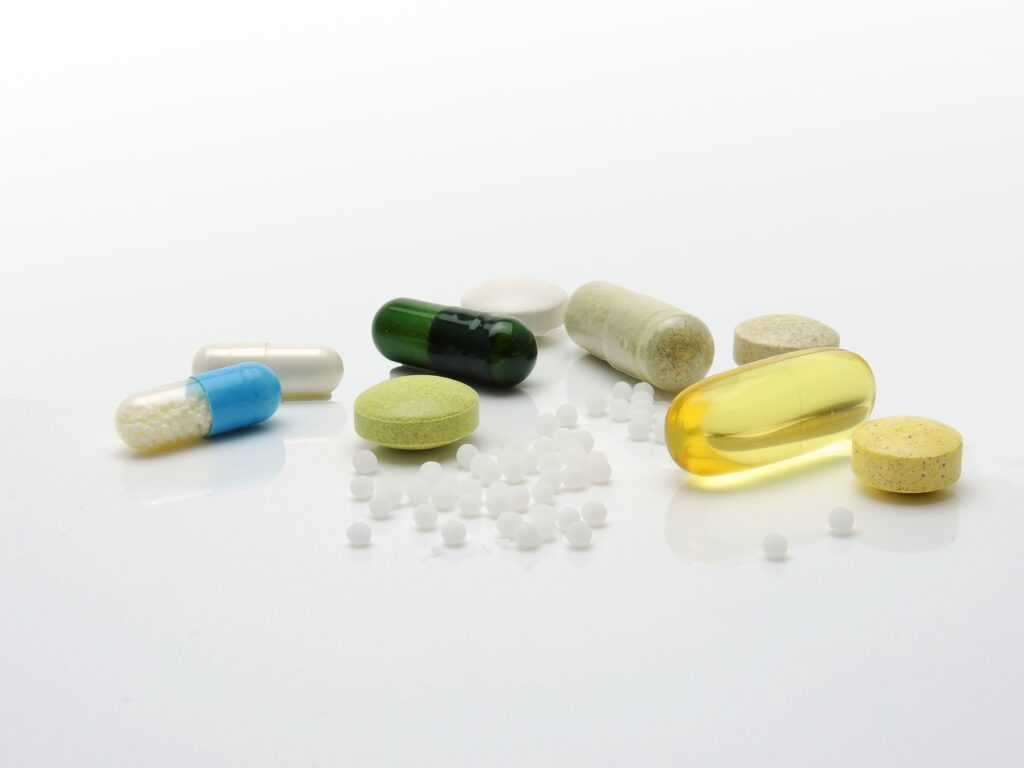How To Tell If You Have A Vitamin Deficiency
If you are experiencing fatigue, muscle weakness, dry skin, or hair loss, these are indications that you may have a vitamin deficiency.

Vitamins are organic compounds that our bodies need to function properly to keep our body systems strong and healthy. We typically get them from our foods, and our bodies can even make them. However, for some people, it can be challenging to get enough vitamins from food alone because they are athletes or exercise a lot. That’s when a vitamin deficiency could occur.
Symptoms of a vitamin deficiency include fatigue, weakened immune system, muscle aches and cramps, poor vision or night blindness, and dry skin. If left untreated, more serious health issues such as anemia can occur. CNET reports that your body will communicate and tell you if something is out of balance.
Luckily, there are many ways to make sure that you get enough vitamins and minerals in your diet. Eating a balanced diet with plenty of fruits, vegetables, whole grains, lean proteins and healthy fats is the best way to ensure that you are getting all the nutrients your body needs and avoiding a vitamin deficiency. It’s also important to not skip meals.
Vitamin supplements are also an option if you feel you’re not getting enough vitamins from your diet. In some cases, your doctor may recommend a daily multivitamin to make sure that you are getting the right amount of vitamins and minerals. It’s important to listen to your body and take care of it by eating right. A vitamin deficiency can cause big problems.
In addition to getting the proper amount of vitamins from food, a supplement can be taken as well. Fresh, canned, and frozen produce are all great sources of vitamins. But when it comes to deciding which type is best for you, there are pros and cons to each option. Fresh produce is usually the most nutritious, but it can be expensive and hard to find in some areas. You do not have to suffer from a vitamin deficiency if you can’t get fresh produce.
Canned and frozen produce are generally less expensive and easier to find, but they may not contain as many vitamins and minerals as fresh fruits and vegetables. Regardless of which type you choose, it’s essential to read labels carefully and ensure you’re getting the most nutritional value for your money to avoid a vitamin deficiency. Make sure there is no added sugars.
It’s also important to remember that supplements are not a substitute for a healthy diet. Eating plenty of fruits and vegetables, whole grains, lean proteins, and healthy fats should be the focus of any good eating plan.
Supplements can be taken as an additional source of vitamins and minerals, but they should not be used as a replacement for healthy eating. Eating a balanced diet and exercising regularly are still the best way to maintain good health.
Here are some general maladies that may be caused by a vitamin deficiency and the vitamins that can help:
- Fatigue: Vitamin D, Vitamin B3, Iron, Folate, Vitamin B12
- Muscle Weakness and Pain: Vitamins B, D, and E, Magnesium
- Hair loss: Vitamin B12, Biotin, Folate, Zinc
- Dry Skin: Vitamin A, Iron, Vitamins D, E, C, and B, Collagen, Omega 3s
- Slow Healing Wounds: Vitamins A, C, E, K, and Zinc
Thinking about food in terms of what it can do for your body is the key to making sure that you are providing yourself with all the nutrients and energy that you need. Understanding nutrition and how foods affect your body can help you make informed decisions about what to include in your meals.
It is also essential to take into consideration any dietary restrictions that you may have, as some people may need to avoid certain food groups due to allergies or other health issues. Eating the right foods in moderation is always the best approach when it comes to maintaining a healthy lifestyle.









